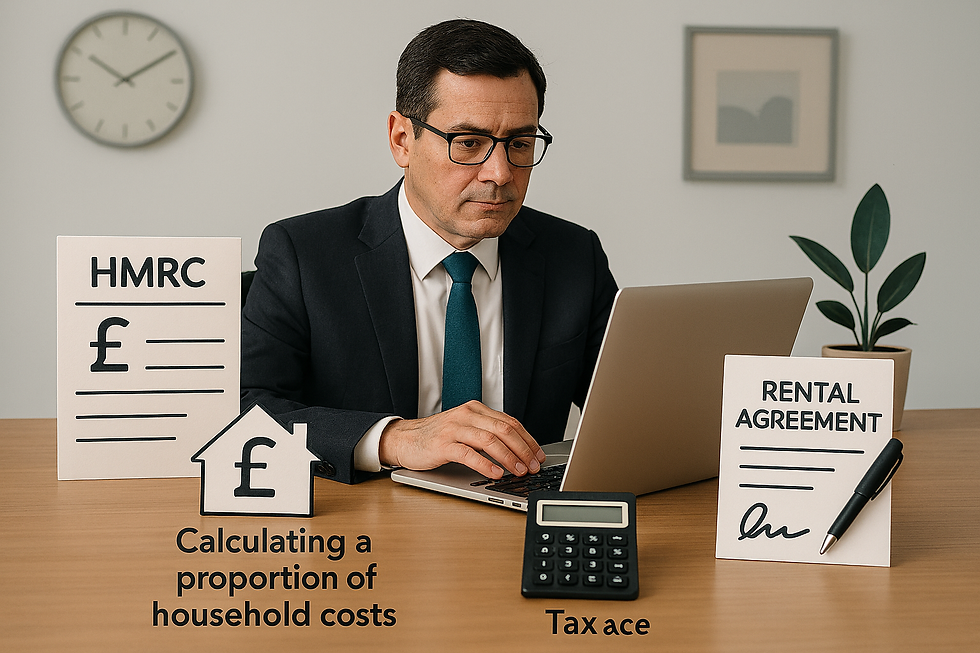Should I Stay as a Sole Trader or Become a Limited Company?
- nk2095
- Jun 30, 2025
- 3 min read
One of the most common questions we get from clients is: “Should I stay as a sole trader, or is it time to go limited?”
This usually comes from people who started their business in a small way — side hustle, freelance work, or a self-employed trade — and it’s grown steadily. Now they’re earning more, taking on bigger projects, and wondering if a limited company would be more tax-efficient or professional.
Here’s how we talk clients through the decision.
1. How Much Profit Are You Making?
The first checkpoint is your annual profit, not just turnover.
Under £50k: A sole trader setup is often simpler, cheaper, and easier to manage. Tax savings from incorporating might be minimal at this level.
Over £50k: It’s worth seriously considering forming a limited company, especially if your profits are growing year-on-year.
One of the biggest advantages of a limited company is flexibility. You only pay personal tax on the money you draw from the company (typically via salary and dividends), rather than on total profits — which means you can earn more through your business without automatically falling into higher personal tax brackets.
If you have other income such as rental property, investments, or a part-time job. A limited company can help you manage your overall tax position more efficiently.
2. Do You Need Liability Protection?
As a sole trader, you and the business are legally the same entity, meaning you’re personally liable for any business debts or legal claims.
A limited company creates a legal separation between you and the business. That means your personal assets are protected, unless you’ve provided personal guarantees.
This is especially important if:
You work on large projects or contracts
You take on financial risk or deal with the public
You’re hiring employees
3. How Important is Professional Image?
Some industries (like consulting, creative services, and B2B work) view limited companies as more “established” or trustworthy. Having “Ltd” at the end of your business name can:
Improve credibility with clients or suppliers
Make it easier to win tenders or corporate contracts
Support future funding, investment, or growth plans
That said, many sole traders run professional, successful businesses so this depends on your sector and audience.
4. Are You Planning to Grow or Keep Things Simple?
If you’re planning to:
Scale the business
Hire staff or subcontractors
Bring in a co-director or shareholder
Invest in assets or sell the business eventually
Then a limited company gives you more structure and room to grow.
If you're happy keeping things lean and don’t want the added admin, staying as a sole trader might suit your lifestyle.
5. What About Admin and Costs?
A limited company does involve more admin:
Annual accounts and tax filings
Director responsibilities
Running payroll (even for yourself)
However, with a good accountant (like Kala Atkinson) the process is streamlined. We handle this day to day for many clients who barely notice the difference especially when the potential tax savings and strategic advantages outweigh the extra admin.
Let’s Run the Numbers Together
When someone’s in this “grey area”, we always sit down and:
Look at current income, profit, and tax position
Run the numbers for sole trader vs limited company
Consider other income, business goals, and sector-specific issues
Give a personalised recommendation based on your situation
It’s not just about tax, it’s about what works for you and the future you want.
If you're unsure whether now’s the time to incorporate, let’s talk it through. We’ll explain your options in plain English and help you make a confident decision.
Book a free consultation today and let’s build the right structure for your business growth.








Comments